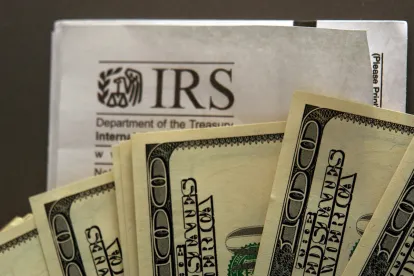The Internal Revenue Service (IRS) is strategically working to execute the statutory changes that were outlined by the Setting Every Community Up for Retirement Enhancement Act (SECURE Act) of 2019. However, the IRS’s efforts to streamline the required minimum distribution (RMD) requirements for Internal Revenue Code (IRC) Section 403(b) plans with Section 401(a) qualified plans, such as 401(k) plans, may have unforeseen challenges and risks.
A proposed rule was published on February 24, 2022, in the Federal Register. The preamble of the rule indicates that the IRS and US Department of the Treasury are considering changes to conform the treatment of Section 403(b) plans more closely with that of Section 401(a) qualified plans for RMDs. Section 403(b) plans are currently treated the same as individual retirement accounts (IRAs) for purposes of applying the RMD rules. As a result, RMDs are not required to be automatically made from Section 403(b) plans like they are from Section 401(a) retirement plans. The IRS’s proposed rule would require any nonprofit organized under IRC Section 501(c)(3) (i.e., hospitals, public schools and churches) with retirement plans to make RMDs going forward.
Though the proposed rule presents the opportunity to simplify and align the treatment of Section 403(b) plans and Section 401(a) qualified plans, it poses administrative difficulties and potential conflicts with state law. Section 403(b) plans can be invested in a variety of funds, including annuity contracts—group and individual contracts—with insurance companies, custodial accounts or retirement income accounts for certain church workers. For individual annuity contracts, this could create a contractual issue. Employers are not a party to individual contracts between plan participants and investment firms, which would limit the ability of employers to compel RMDs. (Note that distributions could still be forced from group annuity contracts between employers and investment firms.) Regardless of the type of annuity contract, every contract will have to be reviewed to ensure it can comply with the proposed rule. To the extent any changes need to be made to these contracts, state-level approval may be required as insurance companies are governed by state law requirements.
In addition, the proposed rule does not take into consideration the effect of the prospective changes on Section 403(b) plans that are exempt from ERISA because of the safe harbor offered by the US Department of Labor (DOL) in 1979 (29 C.F.R. § 2510.3-2(f)). One of the conditions for meeting the safe harbor is that the employer involvement be limited to certain specific activities. If an employer is required to actively negotiate with insurance providers or choose a provider to administer the RMD requirement for participants, it might be violating this restriction and inadvertently subject its program to ERISA. The IRS and DOL will need to coordinate on the impact of this rule in such cases.
The IRS is taking this proposed rule under review and has asked for feedback specifically related to administrative concerns, notable differences in the structure or administration of Section 403(b) plans compared to qualified plans that might affect RMDs, and any potential transition rules that would help with the implementation process of this rule. Comments are due by May 25, 2022. Following that deadline, a hearing on the proposed regulations is scheduled for June 15, 2022.




 />i
/>i
